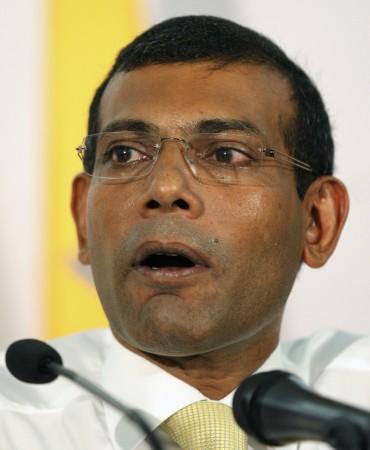
Former President of Maldives and the country's current opposition leader Mohamed Nasheed was reportedly arrested on Sunday.
Authorities in the island country have now ordered him to stand trial for his 2012 decision to arrest a senior judge. According to a document signed by a judge of a criminal court cited by the Associated Press, Nasheed was charged under "anti-terrorism laws" although the nature of his detention has been claimed to be politically motivated, according to his party.
As scenes of his arrests were aired by local television channels, Nasheed's party immediately called for his release and his supporters staged protests in the capital city of Male.
The small nation, comprising a group of islands, has only entered the seventh year of multiparty democracy following 30 years of autocratic system. And Sunday's protests could well be a sign of brewing political instability inside the Indian Ocean archipelago, reports have noted.
Weeks of public protests in 2012 over Nasheed's order to arrest the Chief Judge of Criminal Court, Abdullah Mohamed had forced him to resign. He was charged with corruption but was later released.
The prosecutor-general withdrew the initial charges against the 47-year-old last week but issued an arrest warrant on Sunday under the new charges of terrorism although it is related to the same incident from three years ago, reports Aljazeera.
The first hearing of the case will be on Monday.
"I call on the public to do all that is necessary to stop the harassment meted out to me and other politicians to save Maldives," Nasheed told reporters as he was taken to a detention centre on another island.
The man had lost presidential elections in 2013 to the current President Yameen Abdul Gayyoom – half brother to autocratic ruler, Moumoon Abdul Gayyoom who ruled for 30 years.
Government minister Mohamed Shareef, meanwhile, said that Nasheed was arrested because the court surmised that he may not honour the orders if he was summoned for a trial.
Nasheed's party, however, described his arrest as "a desperate and reckless attempt by President Yammed to cling onto power in the face of growing opposition," reports BBC.















